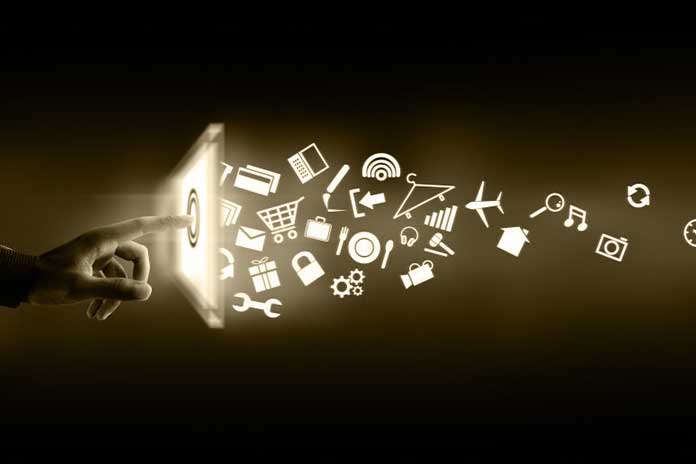The German economy is dependent on fossil fuels, which is now more noticeable than ever. The goal agreed by the traffic light coalition of keeping to the 1.5-degree mark for global warming is difficult to achieve. However, digitization can make the economy less dependent on fossil fuels.
One reason for the dependence on fossil fuels is the sluggish digitization in German companies. In some regions, this is still in its infancy, especially in small and medium-sized companies, which often find it challenging to find suitable IT specialists. Only a third of German companies communicate electronically, and only 18 per cent offer electronic invoicing. In an EU-wide ranking, Germany occupies eleventh place in digitization. In short: Digitization in this country can be expanded. For example, through digitalization in the transport sector, data can be collected that form a basis for the design of climate-friendly mobility independent of fossil fuels. However, many German companies lack the crucial know-how to draw suitable lessons from this data.
Digitization Contributes To Environmental Protection
In the white paper “The Future of Us”, Cognizant addresses how digitization can contribute to a more climate-friendly future. From processes and systems to interact with customers and partners to entire value chains, almost everything has to be rethought from the point of view of digitization. Advanced technologies and the modernization of operations and collaboration across the value chain will be critical to building new business models that meet sustainability goals and ensure the planet’s health. Businesses need data-driven intelligence and visibility to transform supply chains, design and behaviours towards green, circular operations.
To do this, companies must become more efficient, automated, intelligent and faster. The best way for them to do this is to digitise all processes. By evaluating data, companies can see where and what changes are needed to act in a more climate-friendly manner. All operating procedures can be optimised in this way. Digitization must be the focus if companies want to work more sustainably. They need to understand and apply the insights gained through digitization. Advanced technologies and new ways of interacting will be crucial to achieving sustainability goals.
Digitization Paves The Way For New Mobility
According to a study by the Fraunhofer Institute, e-mobility plays a crucial role in reducing CO2 emissions. It is necessary to expand the digital infrastructure to make electric vehicles more attractive. For example, self-driving cars will become increasingly important in the future for consumers. Almost two-thirds of people considering buying an electric vehicle believe such automation features are essential. By promoting digitization, automakers can better respond to consumer needs and optimise vehicles to minimise emissions. However, the automotive industry in Germany is currently concentrating on the topic of mobility after the combustion engine – and that on a global level.
High Demands On Software Development
Many companies cannot adequately meet the requirements of software development. However, IT and software competence is crucial for aspects such as electrification, self-driving cars and mobility concepts for the topic of sharing. Cars are becoming software platforms, and car manufacturers need support to master this transition to the digital world successfully. At the same time, the use of public transport must become more attractive. This, too, can only be achieved through digitization.
By analysing data sets, public transport companies can better understand the needs of their customers. However, only 33 percent of public transport companies use Big Data to optimise their processes and thus become more attractive to customers. Many public transport companies rely on sensors to collect data, but this data remains largely unused. Suppose the climate protection goals set by the German government are to be met, which calls for a reduction in greenhouse gas emissions of at least 65 percent by 2030 compared to 1990. In that case, companies must prioritise investing in digitization initiatives.
How To Prepare For The New Net Zero Era
Businesses must reduce their ecological footprint by adapting to the digital world. It is critical to bring sustainability, consumerism and purpose to every industry through intelligent systems, data-driven insights, collaborative approaches, innovative business models and experience. This will not only help the planet. Digitization is slowly finding its way into all companies, regardless of size and industry.
Some German decision-makers have already recognized the urgency and are driving the digitization process in their company. This includes, for example, the manufacturing industry, which is beginning to automate all production processes. To help these companies achieve their goals, Cognizant, a global IT services provider, plans to create 2,000 new jobs in Germany and Switzerland. For example, Cognizant provides the automotive industry with access to software expertise in data analytics and cloud and digital engineering. With their know-how, the engineers from Cognizant support the automotive industry.
